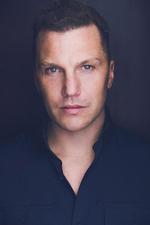Hockey News - Former NHL agitator Sean Avery still making waves, this time as an author

TORONTO — Sean Avery is the first to admit he's made mistakes.
"I've put myself in some stupid situations. I always have," the former NHL agitator said in an interview. "I'm not perfect and I don't think before I act — a lot. And it gets me in trouble quite a bit."
Avery's missteps, accidental or orchestrated, made him a lightning rod during his 10-season career with the Detroit Red Wings, Los Angeles Kings, New York Rangers and Dallas Stars.
It makes for colourful reading in Avery's autobiography "Offside. My Life Crossing the Line."
Avery, now 37, was always cut from a different NHL cloth. An accident waiting to happen on the ice, he was most unhockey-like away from the rink, interning at Vogue and taking in fashion shows.
From being ordered to anger management rehab for his infamous "sloppy seconds" comment about Dion Phaneuf romancing former girlfriend Elisha Cuthbert to facing Martin Brodeur and waving his stick like a crazy man in a bid to screen the goalie during a power play, Avery is no stranger to making waves and rubbing the establishment the wrong way.
His book, co-written by Michael McKinley, continues that trend as Avery throws out manhole-cover-sized brickbats.
"If you write a memoir, you have to write a memoir," he reasons. "I had a lot of relationships in my career that weren't good relationships.
"There were a lot of coaches I didn't like. There were teammates I didn't like ... If they were important pieces to that year, I had to write about it."
Former Atlanta and New Jersey star Ilya Kovalchuk is a soft Russian "who will never win because it's too hard."
Former Devils goaltender Martin Brodeur is a home-wrecking "dirtbag" who left his wife for her sister-in-law.
Matthew Barnaby, a rival irritant, is simply "insane."
But the biggest vial of venom is reserved for former Rangers coach John Tortorella, who throttled Avery's playing minutes until he was sent to the minors one last time.
"A clown who was scared of the power I held with the Rangers," writes Avery, who was a fan-favourite in his two stints at Madison Square Garden before retiring in 2012.
Avery tosses out other tidbits, like NHLers' reliance on painkillers to the fact that some of the Rangers, after seeing Armin van Buuren in concert, were still high on ecstasy the next day on the plane to teammate Derek Boogaard's funeral
Avery laments the uncaring business side of the NHL that forced an injured and broken Boogaard to be gone from the Rangers training centre each day by the time the healthy players arrived — isolation adding to his many other demons.
Spurred on to prove wrong every person who said he couldn't make it in hockey, Avery has his own issues. But he says his unpredictable on-ice persona was a role he turned off away from the rink.
With Avery, it was often one step forward, two steps back. His sloppy seconds comment, he says, came in part out of annoyance that on that day in 2009 in Calgary, the media were more concerned with the dating game than matters "a million times more important" in the world.
While Avery has blotted his copy sheet more than a few times, he has also blazed a trail. In 2011, he made a video speaking out in favour of same-sex marriage, part of the New Yorkers for Marriage Equality campaign.
Avery is fiercely loyal to Rangers/Knicks owner James Dolan, who let him wear a Rangers jersey in the video.
Avery's book is very much a love affair with New York City, the Rangers, model-wife Hilary Rhoda and a select band of hockey brothers led by Chris Chelios, Brett Hull and Brendan Shanahan.
"They were the ultimate big brothers who embraced personalities, who didn't try to change people," Avery said of the Hall of Fame trio. "But there were a lot of times where they had conversations with me where it went in one ear and out the other, that I think about now and think 'You really should have maybe listened to that one a little bit harder.'"
In person, the five-foot-10 Avery is thoughtful good company in a slim, stylish package that still feels the effects of hockey at the highest level.
"There are some days where it's tough to get out of bed," he admits.
He runs twice daily, helping mimic the two-a-day workouts that were part of his hockey day.
He has got back to watching hockey, saying twice in the last week he was pulled into a "YouTube hole" watching Connor McDavid and Auston Matthews highlights.
Today, Avery is consumed by acting after director Peter Berg, a friend, cast him in a small part as a cop in "Patriot's Day.
"It was the first feeling since I stopped playing that even remotely came close to fighting at centre ice at Madison Square Garden," he said.
"I was hooked instantly," he added. "I will either go broke trying to be an actor or I will become a working actor ... in the theatre world or the film and television world."
But he acknowledges the transition from pro sports to the real world has been difficult even though he planned for it.
"You've just left a job that if your co-worker isn't pulling his weight, you can ask him to fight," he said. "And you fight him and then you hug each other and you go back to work.
"So when you've been doing that since you were a teenager and now all of a sudden your livelihood depends on being in a situation where you have to play by a whole new set of rules, hard is a word that doesn't describe it."
---
"Offside. My Life Crossing the Line." By Sean Avery. Viking, 313 pages, $32.
Follow @NeilMDavidson on Twitter














